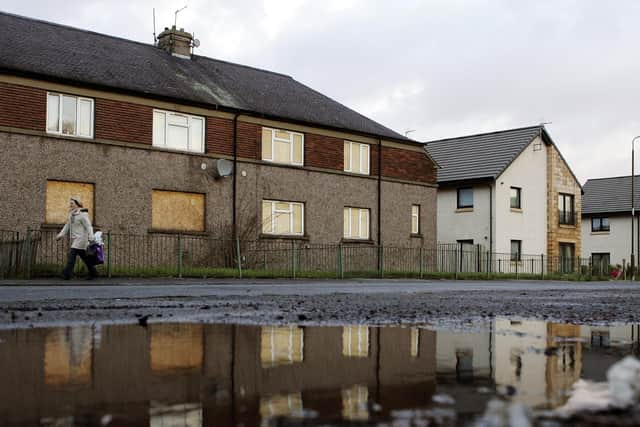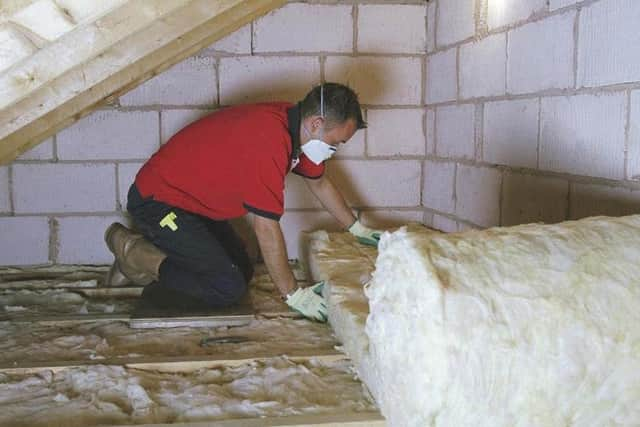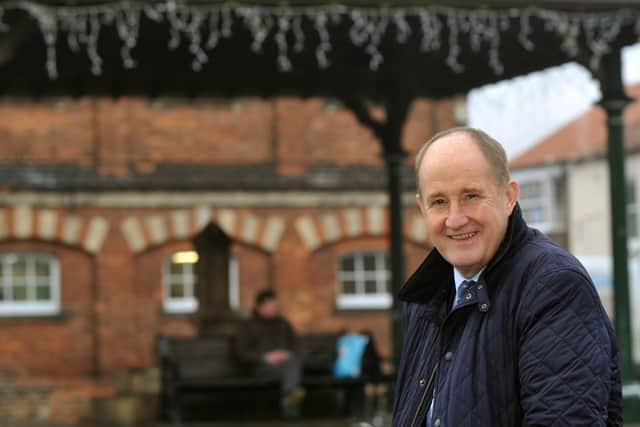Green revolution can boost Northern Powerhouse and support ‘levelling up’ - Kevin Hollinrake
Together with 10 colleagues from across the North, I have published an essay collection with the Conservative Environment Network, setting out our vision for the Net Zero Northern Powerhouse.
Through stronger policies in areas such as retrofitting social housing, we can both cut emissions and create a green employment boom.
Advertisement
Hide AdAdvertisement
Hide AdMuch of the debate on home energy efficiency is centred on the 200,000 new homes delivered each year, but the vast majority of greenhouse gases are emitted from our 29 million existing dwellings, 85 per cent of which will still be occupied in 2050.


I was pleased to see that making our homes more energy efficient was included in the Government’s recent 10-point plan for a green industrial revolution, and the North is a natural place to begin such a campaign.
Insulating more homes will be critical to reaching our net zero target cost-effectively. Energy use in homes accounts for roughly one fifth of the UK’s greenhouse gas emissions. Measures like loft or cavity wall insulation can cut energy requirements, reducing the nation’s need for electricity or gas made from fossil fuels.
Energy efficiency isn’t just beneficial to the mitigation of climate change, it’s also a significant opportunity to alleviate the effects of poverty. Because they are more likely to use pre-payment meters, fuel- poor households perversely often face higher bills than better-off households.


Advertisement
Hide AdAdvertisement
Hide AdFurthermore, the Energy and Climate Intelligence Unit found that leaky homes will see bills rise to an average of £124 per month during this winter lockdown while energy usage is high, compared with £76 per month for those in well-insulated homes.
Cold homes also have a profound effect on health and put an extra strain on the NHS. Of the average 35,600 excess winter deaths in Britain, 10,680 were attributable to a cold home.
It goes without saying that the North has colder winters than the South, with the lowest temperatures up to four degrees lower in Yorkshire than London. We need to keep our homes warm and comfortable, especially as more of us are spending more time at home with flexible working.
I welcomed the Chancellor’s announcement of a pilot £50m Social Housing Decarbonisation Fund, which the Government has committed to funding further in the 10-point plan.


Advertisement
Hide AdAdvertisement
Hide AdCombined with the appropriate use of the planned £9.2bn manifesto commitment to boost energy efficiency, this could raise the energy standard of all social housing to at least EPC band C by 2030.
If established with a long-term framework, such a scheme could also spur local businesses and jobs. Many of the businesses that provide retrofits in Thirsk and Malton are small and medium-sized enterprises (SMEs), which will be central to both the economic recovery and levelling up our country.
There’s huge scope to create lasting, high-skilled and well-paid jobs in the construction sector through social housing retrofits.
The retrofit programme could also include the installation of low-carbon heating and renewable energy, for example heat pumps and rooftop solar panels. Removing unnecessary fiscal barriers to solar panels, such as unfavourable business rates and VAT on solar and battery installations, will support social housing providers to generate cheap energy in the summer which they can export to the grid.
Advertisement
Hide AdAdvertisement
Hide AdExpanding the capital grants scheme for heat pumps will help more homes benefit from lower upfront costs. This would provide a boost to businesses and investors across the North while cutting housing occupants’ bills, and getting us on track to reach the new Government target for 600,000 heat pumps to be installed each year by 2028.
Starting with social housing, a retrofitting campaign would be an excellent way to build back better from the current economic crisis and build a clean Northern Powerhouse. It would support people to upgrade their homes and cut their living costs, providing long-term work for countless SMEs, and reducing the burden of winter illnesses on the NHS. I hope that Ministers will seize this opportunity to level up.
Kevin Hollinrake is the Conservative MP for Thirsk and Malton.
Support The Yorkshire Post and become a subscriber today. Your subscription will help us to continue to bring quality news to the people of Yorkshire. In return, you’ll see fewer ads on site, get free access to our app and receive exclusive members-only offers. Click here to subscribe.